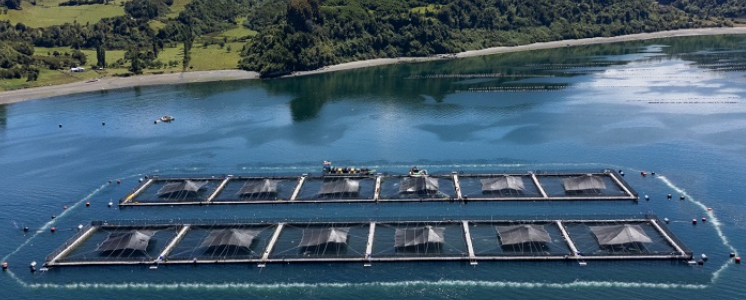
“The exercise included the participation of member production companies of the union and made it possible to evaluate regulatory compliance, identify gaps and diagnose logistical capacities of the participants.”
With the aim of strengthening the preparation of production centers to face events of Harmful Algal Blooms (HAB) – which could generate massive mortalities of fish – the Salmon Technological Institute (INTESAL) coordinated a simulation during the month of January, the which had the advice of professionals from ACUIESTUDIOS, who have extensive experience in the technical and regulatory aspects of the matter.
The simulation is a desk exercise, which recreates a hypothetical contingency situation in which participants must make decisions based on the information they receive during the exercise, as well as what is established in the companies’ Action Plans.
The activity, -in which on this first occasion participated Cultivos Yadrán, Salmones Austral, Marine Farm, Salmones Blumar, Salmones Camanchaca, Ventisqueros and Cooke Aquaculture Chile-, lasted 10 days in total, two pre-contingency and alerts for the presence of harmful algae, three contingency days with mass mortalities and five days for the preparation of the End of Contingency Report (IFC).
In it, it was possible to evaluate regulatory compliance, the activation process of the Action Plans and the response capabilities of the salmon centers in the face of the controlled recreation of a mass mortality event in defined areas. Logistical and coordination gaps were also identified to be able to make subsequent proposals and thus reduce them compared to a real scenario.
The general manager of Intesal, Esteban Ramírez, indicated that “this exercise reinforces our objective of supporting preparation for contingencies from the private sector, but also collecting useful information to detect gaps in regulation and in the fundamental role of the public world. Along these lines, we have raised with different public organizations the importance of reviewing the procedures and requirements in the event of an emergency, delivering proposals in that regard. For example, this exercise showed as a result that companies sent close to 500 emails during the simulation, which evidently generates in a real emergency a demand for time and human resources, both in the public and private sectors, that diverts us from what It is really important that it is to act quickly in the face of the situation. Working on better governance for when highly impactful extraordinary events occur is still a fundamental unresolved gap.
For her part, Intesal’s head of environment, Ximena Rojas, pointed out that “we are working on a series of activities and carrying out extensive monitoring in order to be as prepared as possible in the event of an event. An example of this is the execution of this simulation, which had a high participation, where we were able to see which areas are being worked on well and which we need to continue strengthening for the future. In that sense, we appreciate the commitment of companies to be able to carry out this type of initiatives, so that salmon farming can raise the standards it has.”
Source: www.mundoacuicola.cl

